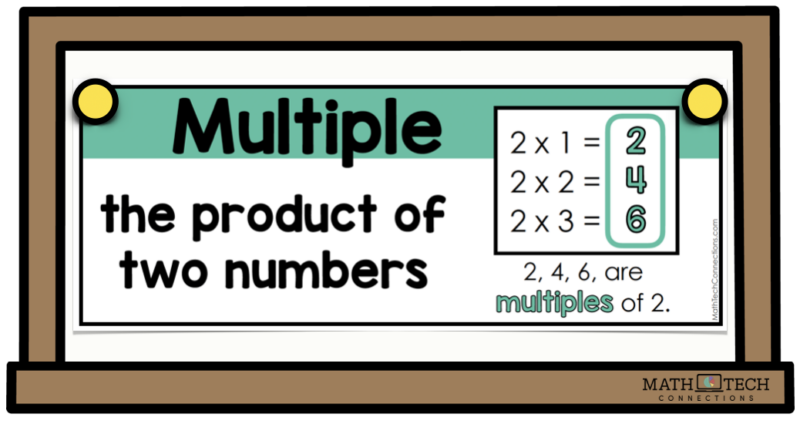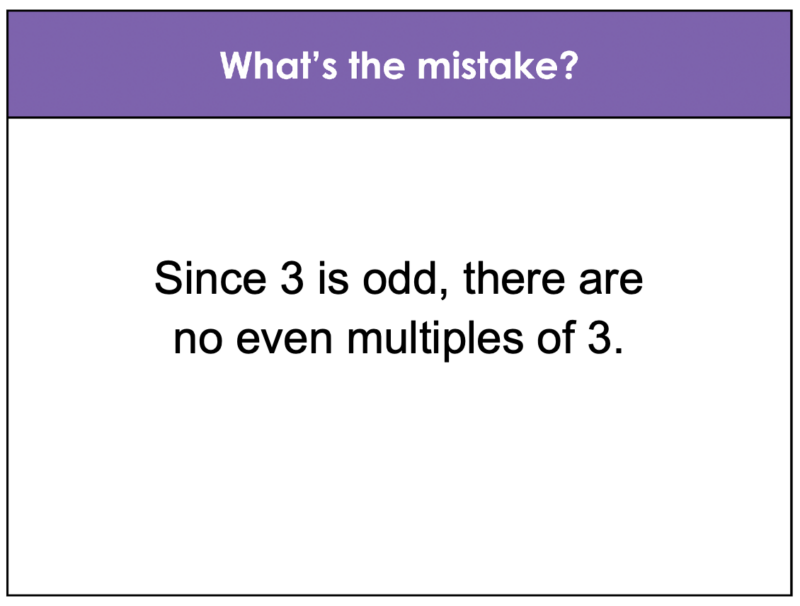
What is a multiple? Multiples are the numbers you get by adding a specific number to itself over and over again. For example, the multiples of 4 are 4, 8, 12, 16, and so on, because you keep adding 4 each time.
Multiplication is a speedy way of finding these multiples. For example, if you’re looking for the multiples of 3, you can use multiplication like this:
- 3 x 1 = 3
- 3 x 2 = 6
- 3 x 3 = 9
- 3 x 4 = 12
- 3 x 5 = 15
Here, each multiplication gives you the next multiple of 3. So, instead of saying 3 + 3 + 3 + 3, we can use multiplication (3 x 4) to get 12.
So, in a way, multiplication helps us find multiples faster and with less counting!
To find out if a number is a multiple of another, check its factors. Sometimes, identifying just one factor is enough to confirm its multiplicity.
Examples:
- Consider the number 15. To see if it’s a multiple of 5, find that 5 is a factor of 15 (5 times 3 equals 15).
- Take the number 18. If you want to know if it’s a multiple of 6, find that 6 is a factor of 18 (6 times 3 equals 18).
- Let’s look at the number 24. To check if it’s a multiple of 8, find that 8 is a factor of 24 (8 times 3 equals 24).
In each example, identifying just one factor was enough to determine that the number is a multiple.
Is 96 a multiple of 4?
96 is a multiple of 4.
4 is a factor of 96, and 96 is divisible by 4.
84 is a multiple of what numbers?
84 is a multiple of all of its factors.
Besides 1 & 84, it is a multiple of 2, 3, 4, 6, 7, 12, 14, 21, 28, & 42!
| Factors of 84 | ||
| Divisible by? | Factor | Factor |
| 1 | 1 | 84 |
| 2 | 2 | 42 |
| 3 | 3 | 28 |
| 4 | 4 | 21 |
| 5 | Not divisible | |
| 6 | 6 | 14 |
| 7 | 7 | 12 |
| 8 | Not divisible | |
| 9 | Not divisible | |
| 10 | Not divisible | |
What are all of the multiples of 8 between 8 and 100?
All of the multiples of 8 between 8 & 100 are all the numbers that are the product of 8 and another factor. Finding the multiples of 8 can be done using the 8s times table or skip counting by 8s:
8, 16, 24, 32, 40, 48, 56, 64, 72, 80, 88, 96
Practice Problems
Which numbers are multiples of 7?
21 is composite.
21 is composite.
21 is a multiple of 3 and 7.
Its factors are 1, 3, 7, & 21.
What’s the next multiple of 3?
3, 6, 9, 12, 15, 18, 21, 24, ?
Which number is NOT a multiple of 6?
